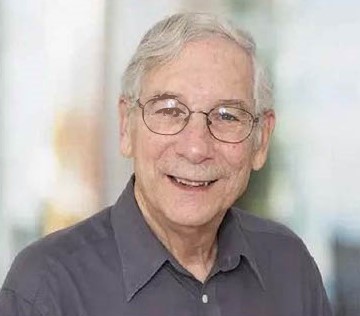In our next expert Q&A we are delighted to welcome Dr Stewart Tepper. Dr Tepper, is a distinguished figure in the field of Neurology, currently serving as the Vice President of the New England Institute for Neurology and Headache (NEINH) in Stamford, Connecticut, and as a Professor of Neurology at the Geisel School of Medicine at Dartmouth. He has contributed over 480 peer-reviewed manuscripts, editorials and books to the field of Headache Medicine. His leadership roles include serving on the Executive Board of Directors for the American Headache Society and holding key positions within the American Migraine Foundation, underscoring his commitment to advancing headache research and education.
We asked Dr Tepper to share his journey into headache medicine, highlighting the mentors who shaped his career and offering advice to early-career neurologists interested in specializing in this field.
 What motivated or inspired you to specialize in the area of Headache Medicine?
What motivated or inspired you to specialize in the area of Headache Medicine?
Brilliant, gracious, and knowledgeable mentors inspired me to specialize in Headache Medicine. These included Drs Neil Raskin, Alan Rapoport, Fred Sheftell and Ninan Mathew. Dr Raskin is one of the giants of 20th century Headache Medicine, a President of the American Headache Society and Professor of Neurology at UCSF with a major textbook and the re-discovery of DHE. Dr Rapoport was President of the International Headache Society, is a Professor at UCLA, and is a major clinician and clinical researcher, with hundreds of papers in the area. The late Dr Sheftell was President of the American Headache Society and the first Board-certified Psychiatrist in Headache Medicine, again a major clinician and a genius of thought. The late Dr Mathew was President of both the International Headache Society and the American Headache Society and was an astute clinician and clinical researcher who, along with the other three, improved classification, understanding and diagnosis of headache disorders, including what came to be classified as chronic migraine and medication overuse headache. All four guided me in my career from its inception.
Do you have any advice for early career Neurologists?
I recommend finding mentors in an area of interest and working with them to publish reviews and research. I would not forget patient care, which leads to asking important questions leading to quality improvement in the field. Once you are published, a cascade of professional growth ensues. Speaking on key areas forces contemplation and summary of important ideas and also widens potential for networking.
What is your prediction for where your subspecialty will be 10 years from now?
Headache Medicine grows by discovery of pathophysiology and identification of specific targets. It is likely that new specific targets will result in an increase in specific therapies for headache disorders, such as has already occurred with triptans and lasmiditan and serotonin, and monoclonal antibodies and gepants and CGRP. It is always difficult to predict, but PACAP, PAR2 and TRPM3 antagonists are all being studied in 2024.
Disclosures: No funding was received in the creation or publication of this short article.
Take a look at some of our recent collaborations with Dr Tepper:
Atogepant for the preventive treatment of chronic migraine: results from the PROGRESS phase 3 trial
Results from the PRODROME trial of ubrogepant for the acute treatment of migraine


